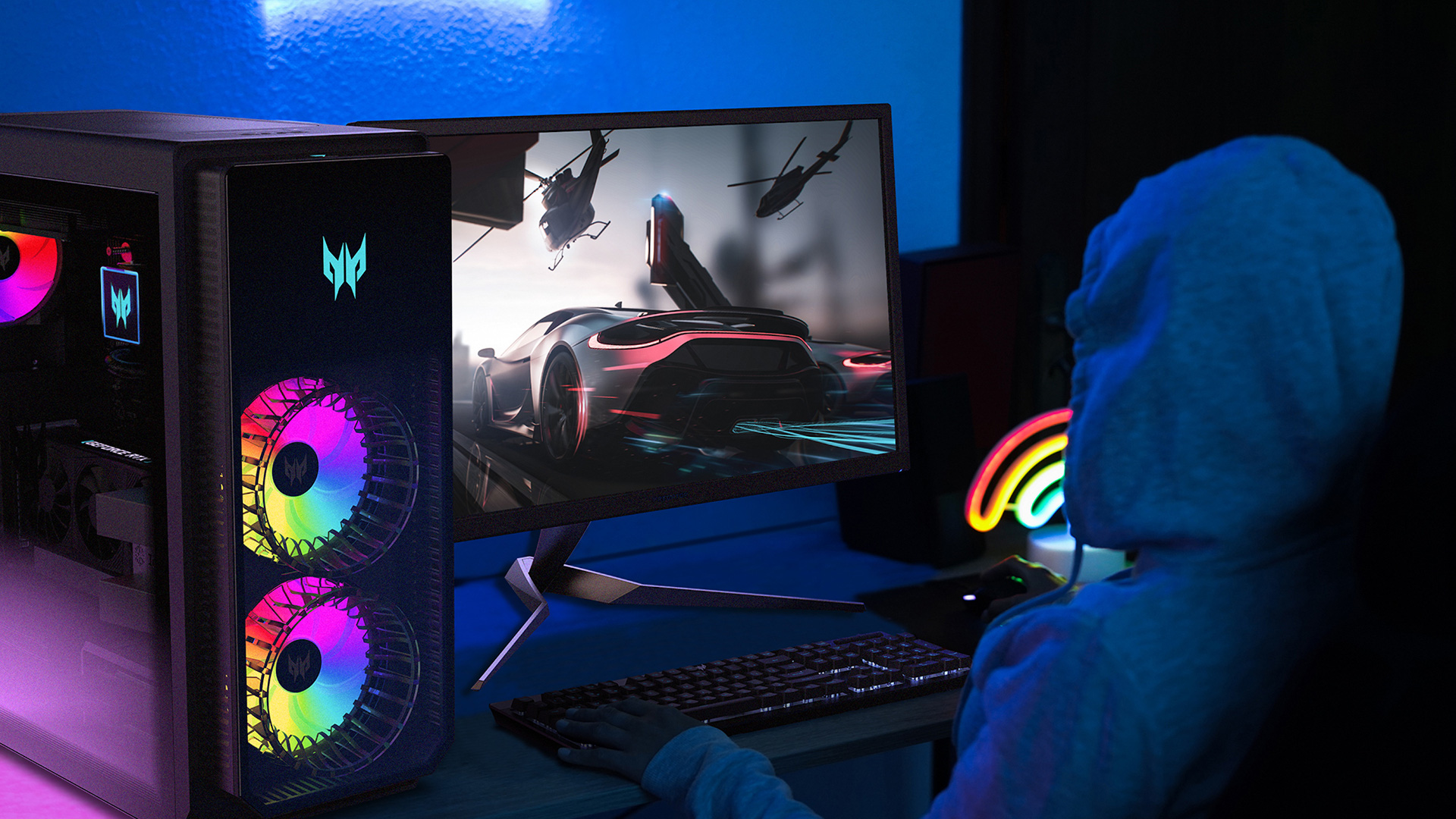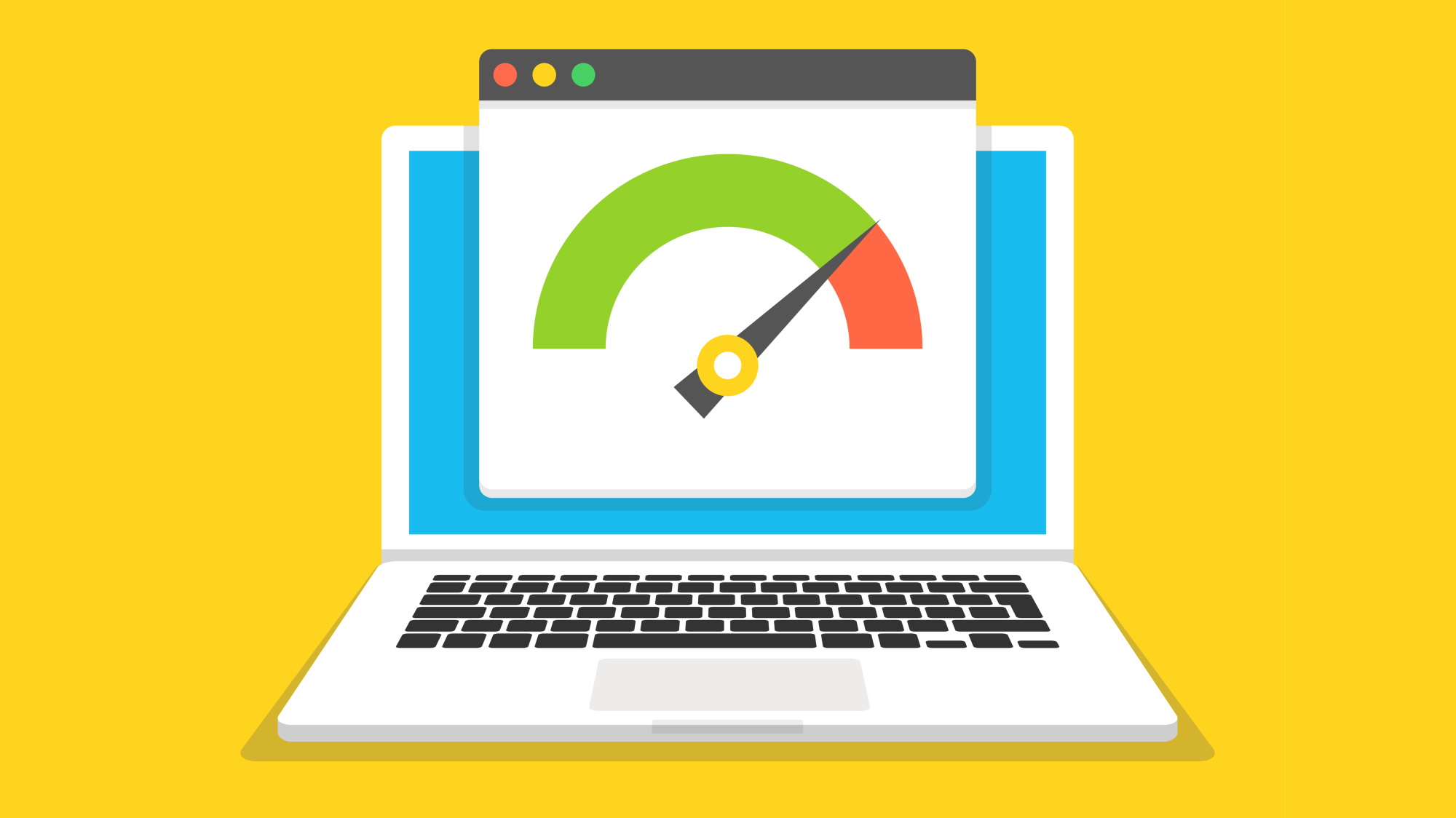What is a good internet speed?
To get good internet speed it helps to know what that actually is

Sign up for breaking news, reviews, opinion, top tech deals, and more.
You are now subscribed
Your newsletter sign-up was successful
To know if you have good internet speed, you first need to know what actually is classed as a good internet speed. If you asked this question ten years ago the answer would be hugely different to today. In fact if you asked it two years ago you'd see a huge jump. As such a good speed is relative to what you need.
Back in the day music and video were stored offline, but now they're streamed. Home security once meant a dedicated system with solid backup but now you can stream to your phone from anywhere. And where there was once grainy 720p video at best, now we stream in glorious 4K and HDR – all needing more internet bandwidth than ever.
It's also worth noting that what may be a good internet speed for one person could be totally useless to another. If you're just checking emails and browsing the odd website, you can probably get away with low speeds and not even notice. But if you've got a house full of gamers and 4K video streamers, you're going to want a line with a bit more grunt.
So, to find out what is a good internet speed and whether you need to upgrade broadband deals, we're going to break it down in a bit more detail so you can apply the results to you.
How to define good internet speed
Until this point we've been talking about speed as a single measure. In reality it's a bit more complicated as it gets broken down into upload speeds, download speeds and then there are ping times to consider too.
Upload, as you may have guessed, is the speed going from your device sending data up to the interwebs. This can be important if you're in a video chat but matters less if you're downloading a movie.
Download, the famous figure most focused on, is always important as that's your feed from the web to you. If this number is low everything will get bottlenecked through that small bandwidth, slowing you down.
Sign up for breaking news, reviews, opinion, top tech deals, and more.
Ping times are the speed at which the server responds to your device. This is important for gamers that want low latency responses so they don't get held back by laggy response times.
Generally a good way to measure your speed is to use a service like https://www.speedtest.net/ and see all that data live.

What's a good ping score?
As mentioned, ping is the time it takes the server to respond. It's like throwing a ball at a surface and seeing how long it takes to be back in your hand. Some surfaces are hard and fast, some can be soft and slower to rebound.
So a good ping time is a low one. These are measured in milliseconds (ms) so you can imagine that the variances in this number are minimal. But if you're gaming that can make all the difference. Ideally you want to have a sub-100ms ping time, at least - something most commonly found with fibre broadband.

What's a good upload speed?
Upload speed can vary wildly since many people don't really look at this number when buying but rather focus on the download bandwidth of the service. A decent upload speed isn't just about backing up photos to the cloud fast, or getting a smooth video chat. This is also the channel that tells the internet what you need.
Imagine having a conversation where the other person does all the talking and you can barely get a word in. That's what it's like for your device if the upload speed is limited. While that's rarely an issue, if you have a lot of devices on one connection, each one telling the internet what it needs, you could get drowned out and suffer lag time.
A good upload speed is far lower than download, sure, but you still want to be getting at least 5Mbps or faster, ideally 10Mbps. Streaming video is a good way to measure this where, for HD streams, you'll need a minimum of 3Mbps to get a decent result.

What's a good download speed?
The download speed is the all important figure. Without this even the best ping and upload speeds aren't helpful. You'll get your request to the internet nice and quickly and then be sat around waiting as the download speed returns your content.
Netflix is a good measure here which says for 4K HDR quality video you're going to want a 25Mbps connection. But keep in mind that if you've got other devices and other users on that same line you may see a drop in quality. It's like a road with two lanes – only so many cars can pass. Extend that to a four lane road and you can get more down there.

What speed do you need?
As this article started out, the speed for you is based on your needs. Hopefully it's a bit clearer now how that breaks down into upload, ping and download figures.
Some key thoughts to keep in mind before you upgrade or commit to a new broadband setup: get more speed than you think you need, make sure the upload and ping times aren't ignored, keep in mind how many devices or people this line needs to support and for how long.
The future is only going to mean more data using devices so having room to grow is a useful option.
Luke is a freelance writer and editor with over two decades of experience covering tech, science and health. Among many others he writes across Future titles covering health tech, software and apps, VPNs, TV, audio, smart home, antivirus, broadband, smartphones, cars and plenty more. He also likes to climb mountains, swim outside and contort his body into silly positions while breathing as calmly as possible.
